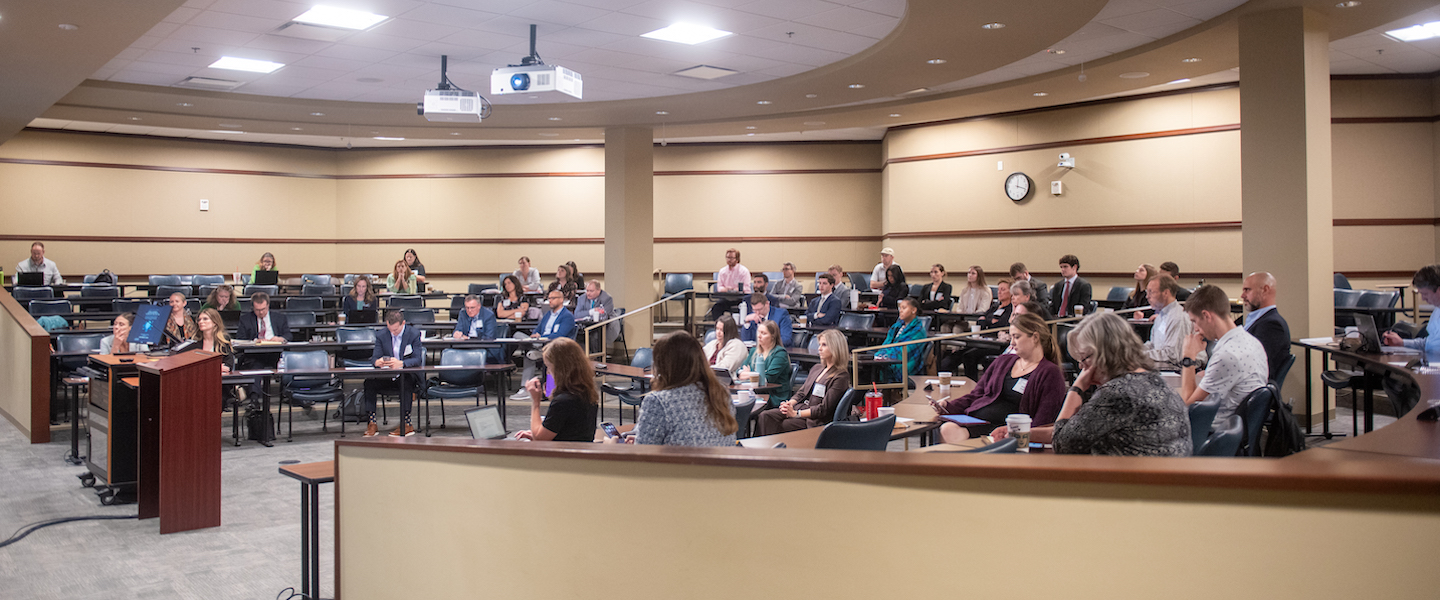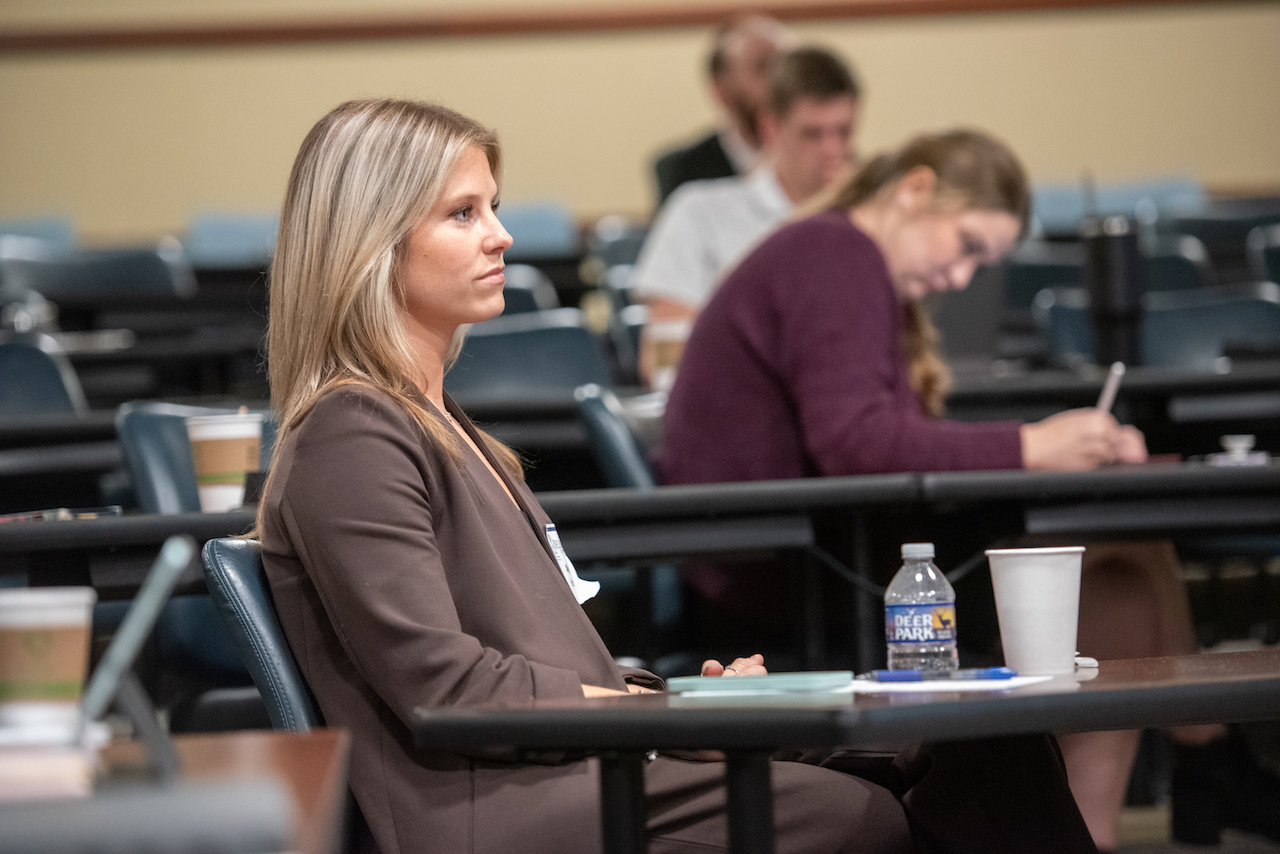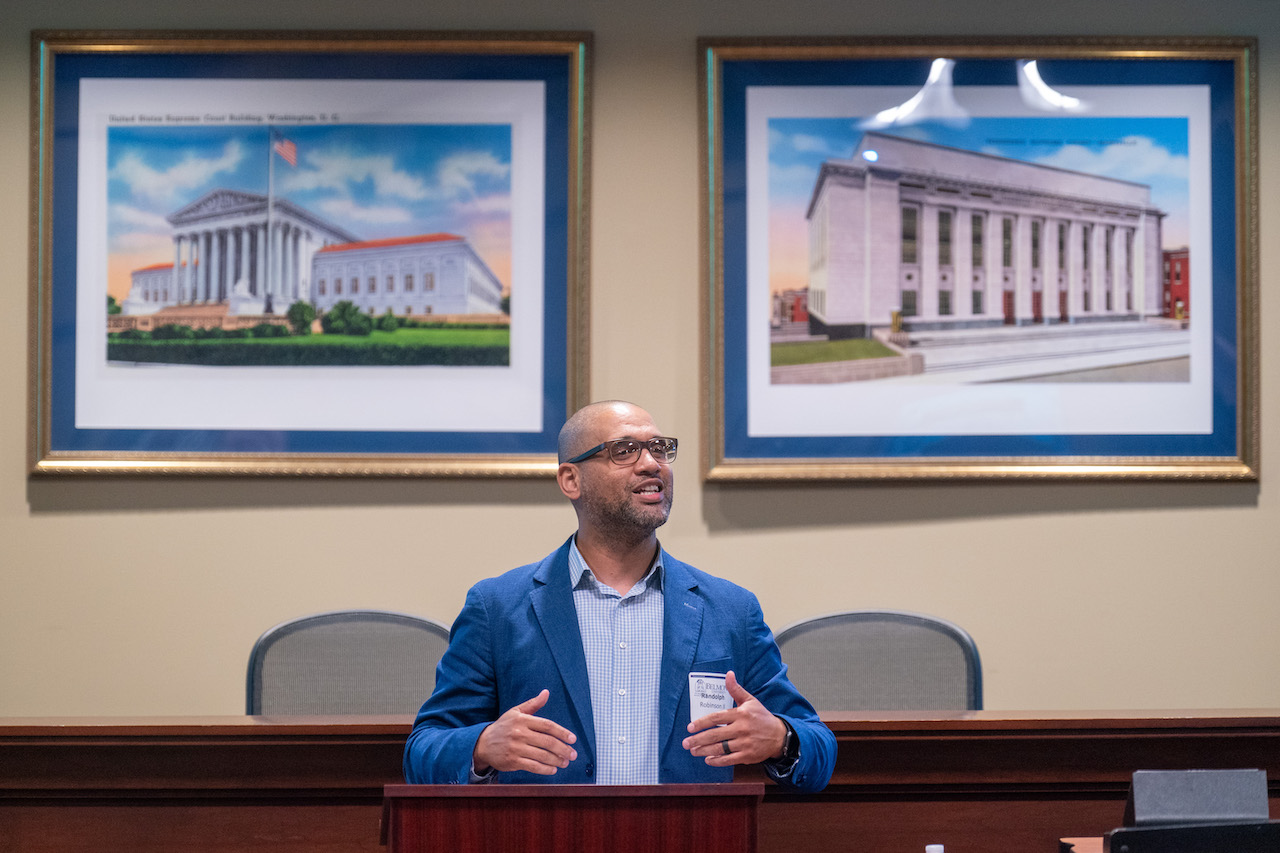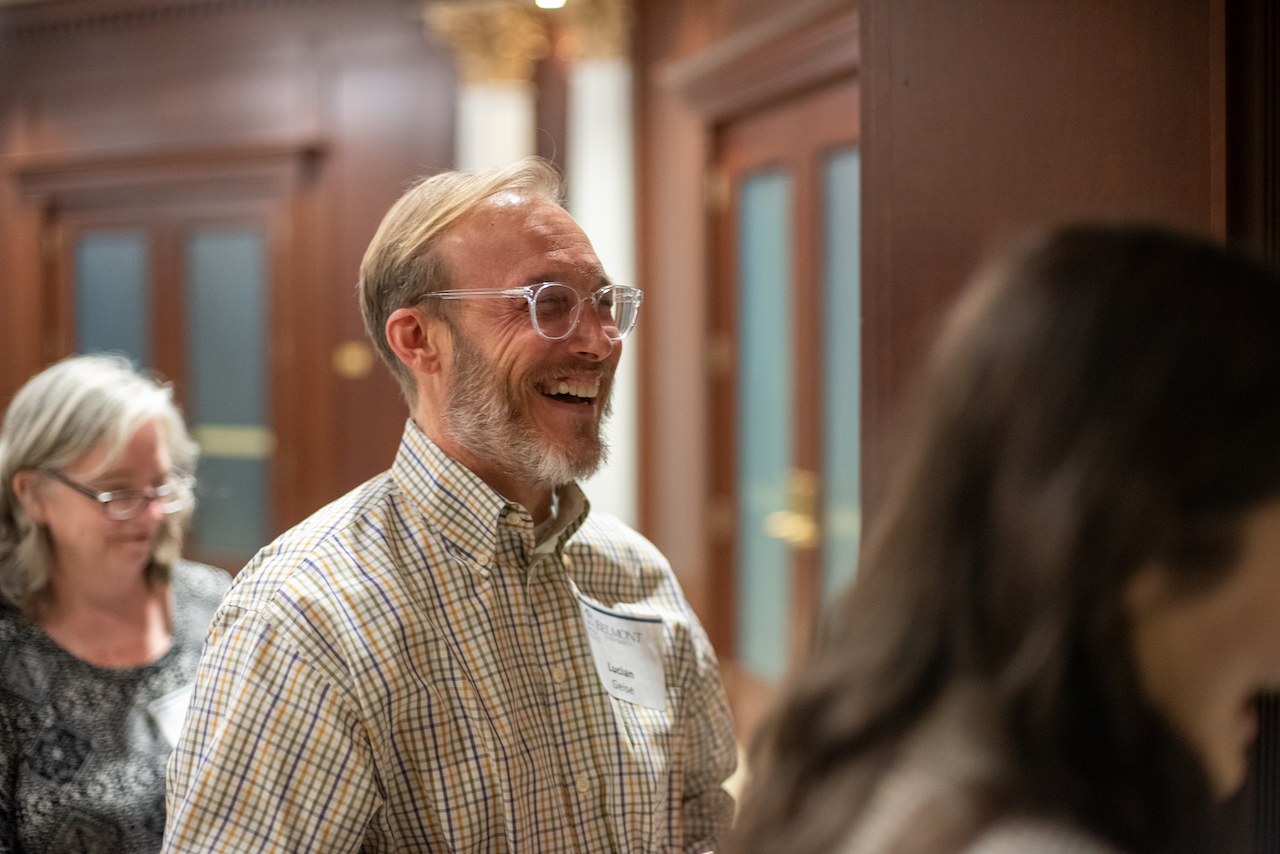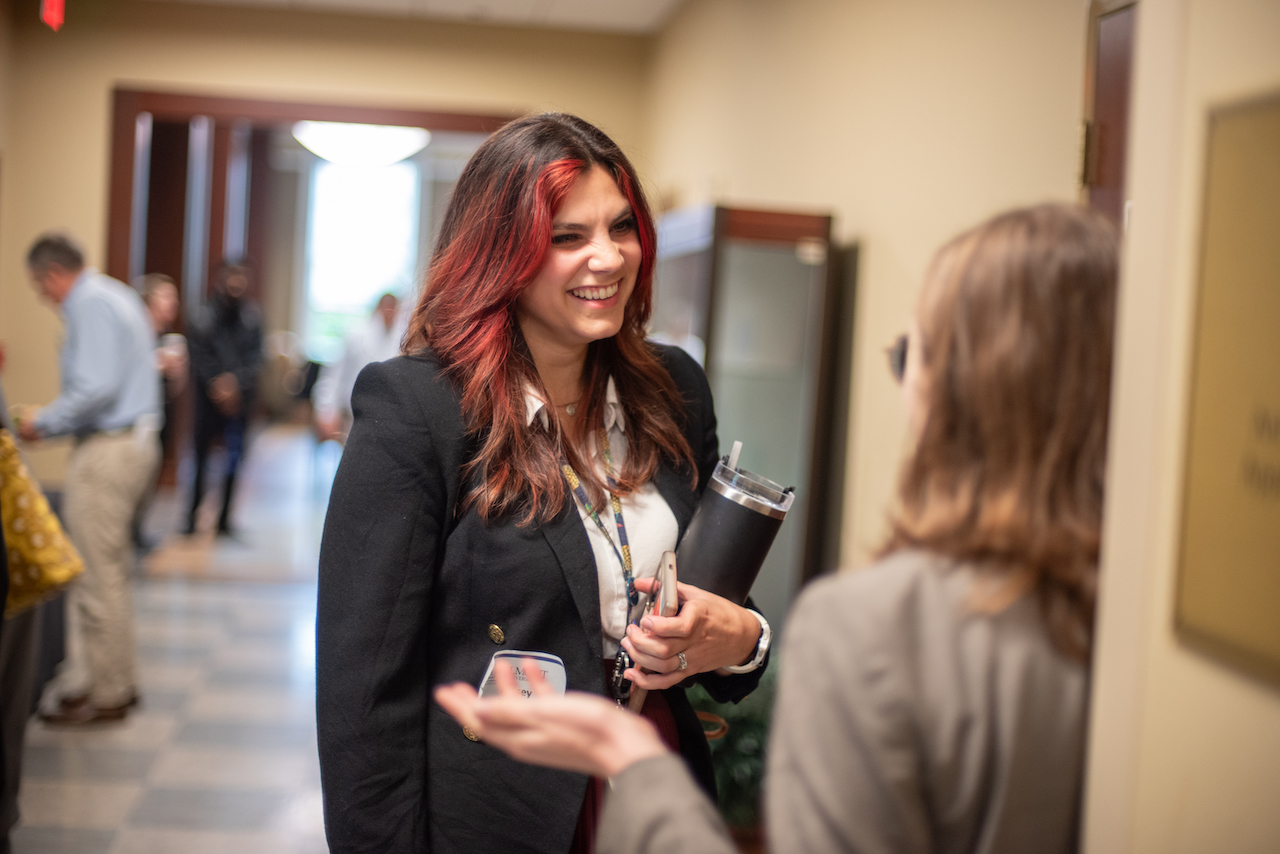Navigating the intersection of technology and law
In an era where technology is rapidly reshaping every aspect of our lives, the legal profession stands at a critical juncture. Recognizing this, the Belmont Law Review focused its annual symposium on "Code & Counsel: An Exploration of Technology and the Law."
This year, thought leaders, practitioners and law students gathered at Belmont University’s College of Law for a day-long exploration of how technology is transforming law across a spectrum of areas, Sept. 27.
About Belmont Law Review
The Belmont Law Review is a biannually published student-managed, student-edited scholarly journal. In addition to publishing articles from law professors and practitioners, and notes from current law students, the annual symposium is a signature event for the Law Review.
Third-year law student Alicia Van Huizen served as the executive symposium editor.
“As a team, we wanted to expand on these conversations to capture a myriad of topics and perspectives with the hope of shedding light on complex legal issues that technology is raising, not just in the AI space,” Van Huizen explained. “As technology is ever-changing, this was a bold and expansive goal, but we received incredible support and feedback.”
Symposium sessions examined the multifaceted impact of technology and its pervasive influence on legal practice and theory. An expert group of speakers presented on topics ranging from civil procedure and intellectual property to cybersecurity and employment law, among other legal areas that intersect with technology.
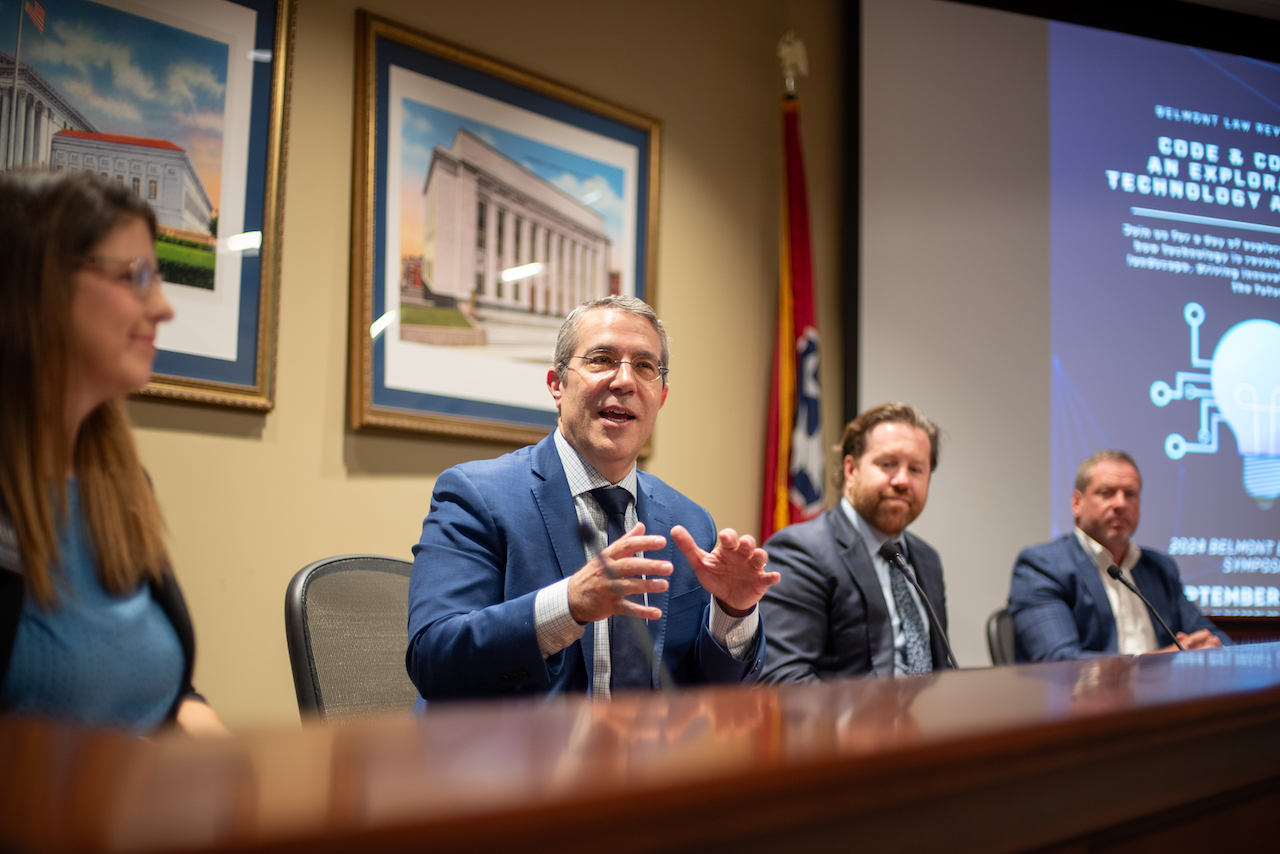
A panel discussion titled "Preventing Error 404: Guiding the Law into a Technological Age" and moderated by Assistant Professor of Law & Director of Experiential Learning Kristi Arth allowed panelists to share perspectives from their different sectors of the legal industry.
“We had a stellar panel,” Arth said. “They provided our audience with recommendations for books and resources to follow to learn more about the field. They also provided actionable tips that young lawyers can take to set themselves apart when it comes to integrating technology into their future legal practice.”
The panelists included intellectual property attorney AJ Bahou, former criminal prosecutor- turned-private-practitioner Alex Little and legal consultancy firm Consilio’s Executive Director Eric Schultenover.
In addition to the panelists, eight speakers presented illuminating sessions focused on the intersection of law and technology.
Additional symposium speakers included Kristen Jakobeson Osenga, associate dean for Academic Affairs and the Austin E. Owen Research Scholar & professor of law at the University of Richmond; Michael Smith, assistant professor at the St. Mary’s University School; Dr. Amanda Reilly, senior lecturer at the School of Accounting and Commercial Law at Victoria University of Wellington; Blake Klinkner, assistant professor at the University North Dakota School of Law; Randolph A. Robinson II, assistant professor at the University of Illinois Chicago; Lucas Osborn, founder and co-director of Campbell Law School Intellectual Property Program; Edward Morse, professor at Creighton University School of Law; Anna Conley, assistant professor at the Alexander Blewett III School of Law; and Heidi Frostestad, associate dean for Academic Affairs and Information Services and associate professor of law at NIU College of Law.
Fostering Intellectual Growth
“Symposia are crucial for the intellectual vitality of law schools,” Arth continued. “By bringing together thought leaders and practitioners, Belmont Law is not only serving the profession but also providing invaluable networking opportunities for its students.”
The relevance of the symposium's theme is already evident, with local lawyers reaching out to implement technologies discussed in sessions. This immediate application demonstrates the event's potential to shape legal practice in Tennessee and beyond.
“The symposium helps Belmont Law serve the profession by ensuring thoughtful discussions of how to advance the law when presented with new problems, such as the rise of artificial intelligence,” Arth said.
The successful symposium allowed students to engage with future colleagues, gain insights into the evolving landscape of legal practice and acquire valuable insights into the challenges and opportunities that lie ahead.
Learn more about Belmont Law and the Belmont Law Review.

